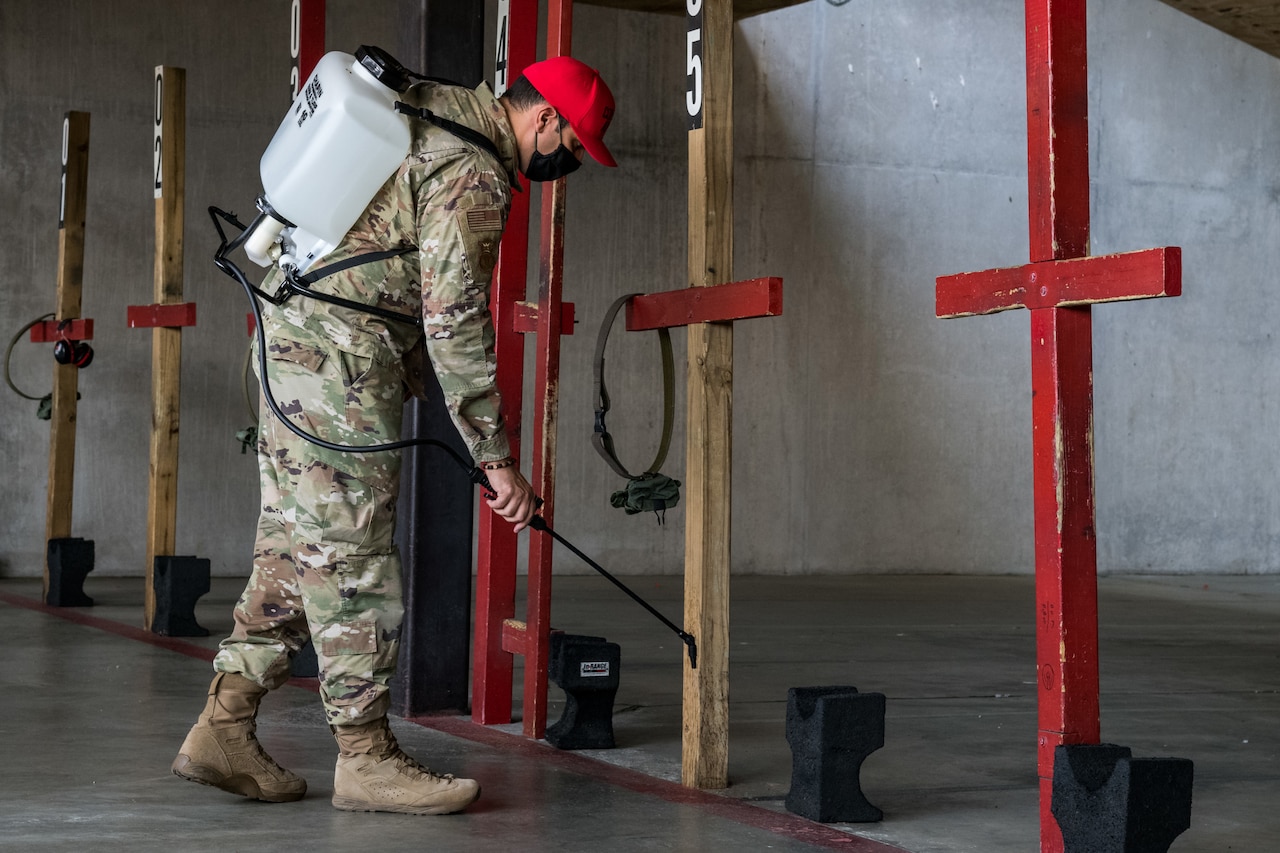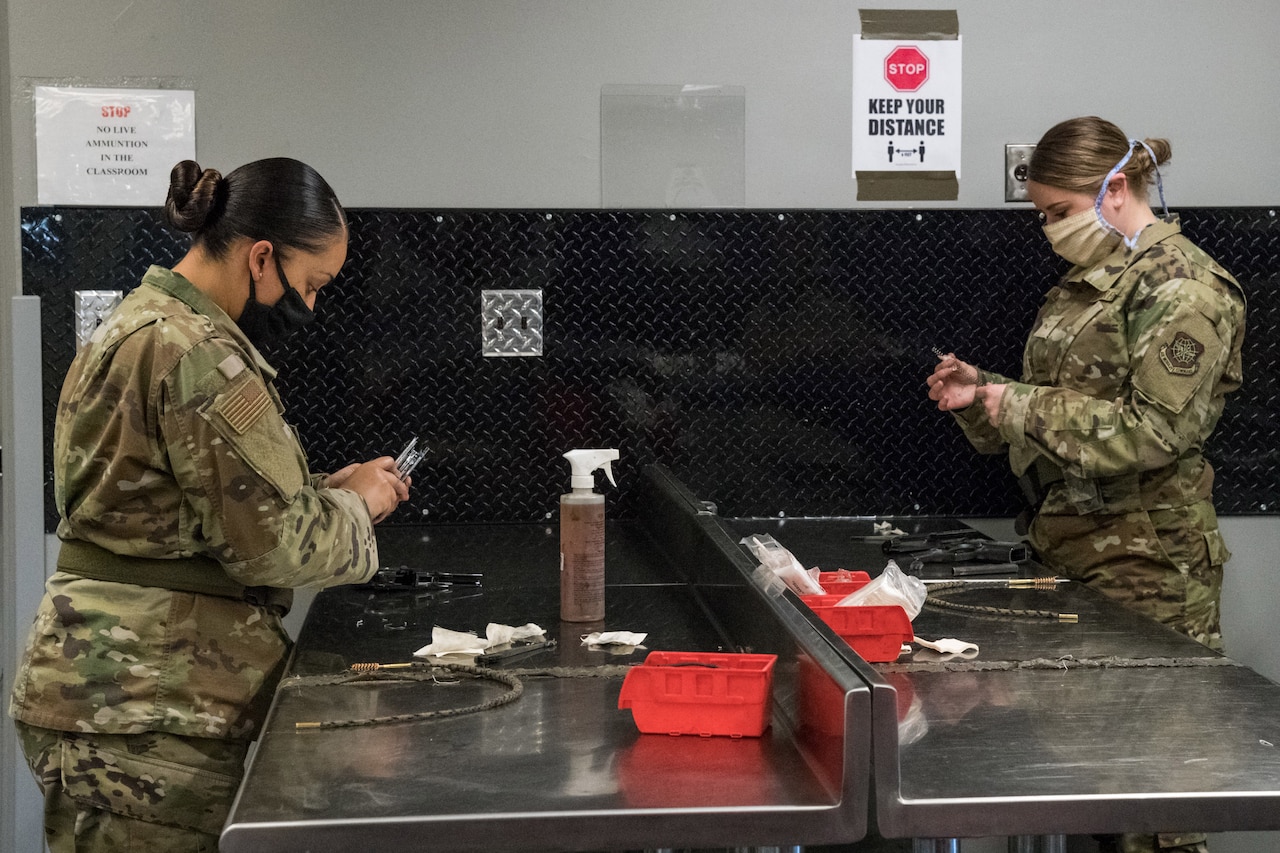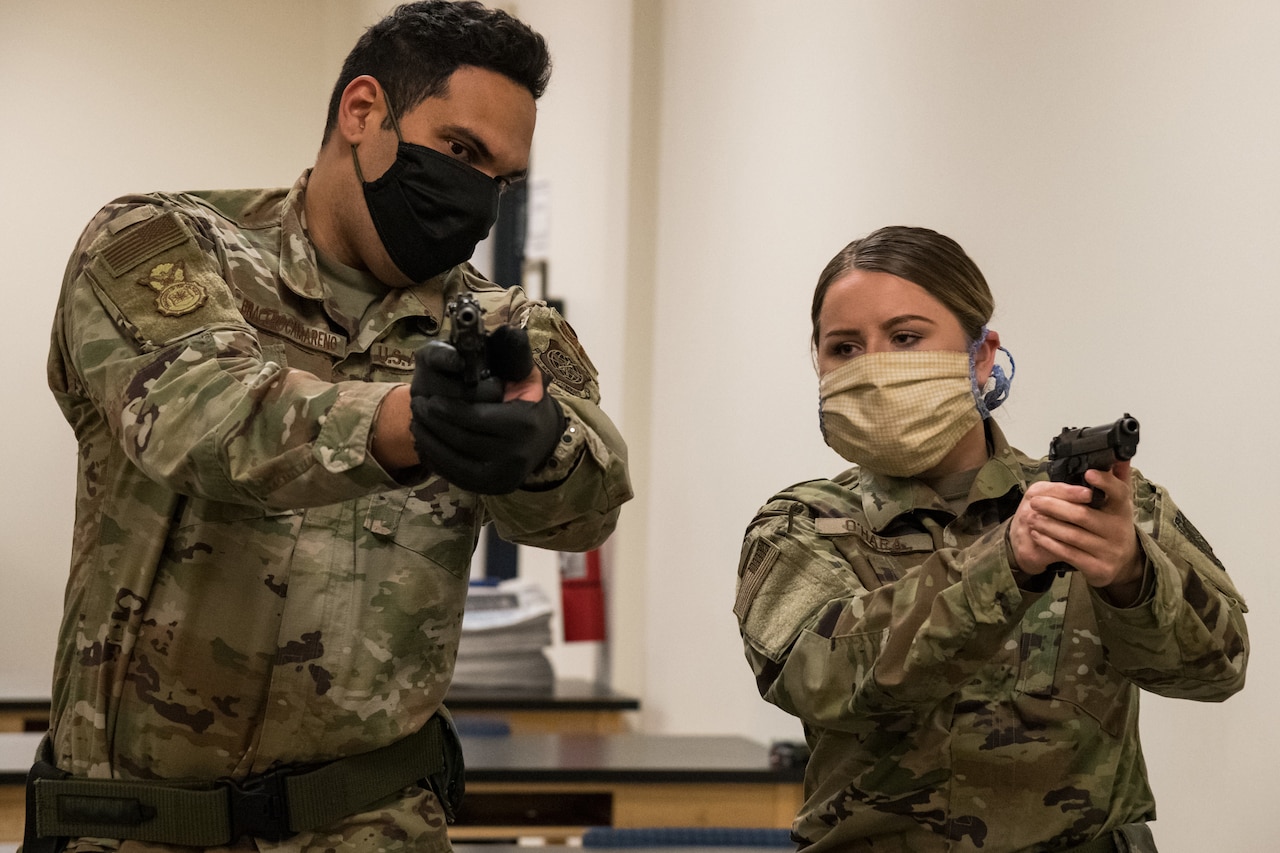Nov. 27, 2020 , 436th Airlift Wing
Combat Arms Training and Maintenance instructors assigned to the 436th Security Forces Squadron resumed training and qualification classes at Dover Air Force Base, Delaware, by incorporating established COVID-19 social distancing and sanitization guidelines to provide a safe training environment while meeting mission needs.

Prior to the COVID-19 pandemic, M4 and M9 weapon training and qualification classes were held on separate days for each weapon, with approximately 21-25 students per class.
Under the new training procedures, M4 and M9 classes are now combined into a longer, single day of training, with a maximum occupancy of 14 students.
The instructors provide students with enough information to make them feel comfortable and confident enough to qualify on each weapon.
"We know that security forces are relied upon to continue providing unrivaled mission support in order for Team Dover to execute its mission," Air Force Lt. Col. Schneider Rislin, 436th Security Forces Squadron commander, said. "We wanted to ensure we could continue weapon qualification for our deployers, so CATM devised a COVID-19-friendly course of action to safely conduct this critical training."
Currently, M4 and M9 training is provided to Team Dover members in the following order of priority: deployment, permanent change of station, duty fire and sustainment.
"We never actually stopped [training] … There were mission-essential people who needed to fire," Air Force Tech. Sgt. Joseph Haller, 436th SFS combat arms training noncommissioned officer in charge, said. "We just ramped back up within the past week."
To help mitigate the spread of COVID-19, Haller and the security force squadron leadership determined that unit-specific training would be the best course of action.

"It eliminates cross-contamination between the squadrons," Haller said. "So if someone does become sick, it only is going to stay within that squadron."
A rotating schedule was devised to protect the instructors and keep them healthy.
"We have two three-person teams for the six-man shop; that's in case one of us CATM instructors gets sick, the other three-person team can still complete the mission," Haller said.
Upon entering the CATM building, posted signs help remind students to wear their masks and use hand sanitizer throughout the day.
"They [students] have the guarantee that all the classrooms have been sanitized," Air Force Staff Sgt. Jose Bracero-Camareno, 436th SFS combat arms instructor, said. "Every time we finish a class or break for lunch, the room gets sanitized."
Using a two-gallon pressurized sprayer and spray bottles, the instructors sanitize the offices, classrooms and the firing range at least three times a day.
"The magazines and cleaning equipment also get sanitized after use. It's all sprayed down with bleach-water [solution] after every use," Haller said.
The students are instructed to wear a mask whenever six feet of separation cannot be maintained, whether in the classroom or on the firing range.

Attending CATM for an upcoming deployment, Air Force Airman 1st Class Kaleigh O'Hara, 436th Comptroller Squadron budget analyst, stated, "Wearing the mask is definitely difficult, but I feel comfortable."
In addition, mask wear on the firing range can create a minor inconvenience for some users.
"The eye pro [goggles] starts getting foggy a little bit," Bracero-Camareno said. "I tell the students they can move the mask a little below their nose only when they are shooting."
Whether it's for a deployment or a permanent change of station, the instructors are keeping Team Dover's air mobility warriors trained, qualified and mission-ready throughout the COVID-19 pandemic.
"I am proud of my CATM instructors' ability to adapt to a changing environment and still get the mission done," Rislin said.








No comments:
Post a Comment